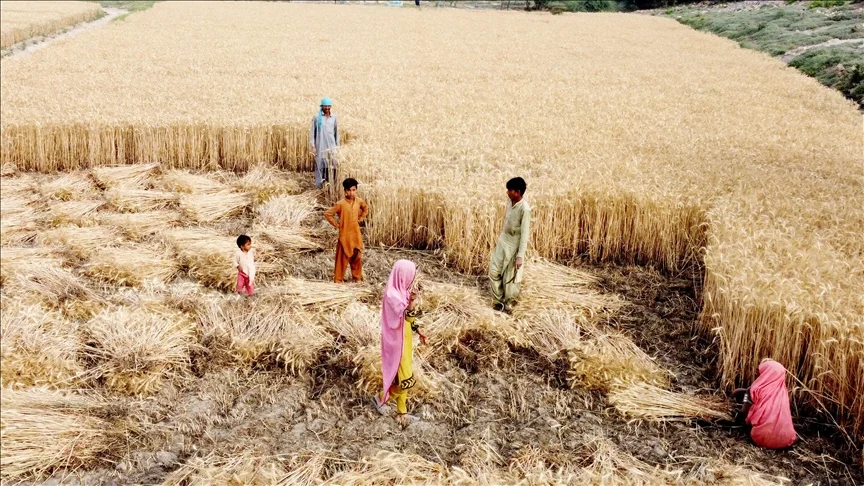Islamabad, Mar 8 2025: The Indus River System Authority (Irsa) has cautioned Punjab and Sindh to brace for water shortages of up to 35% as the water levels in Tarbela and Mangla reservoirs near their dead levels.
This situation raises serious concerns over irrigation supplies, particularly as the Rabi crop season nears its final stage, according to an official report.
In a formal communication addressed to the irrigation departments of all four provinces, Indus River System Authority (Irsa) Director of Regulation, Khalid Idrees Rana, highlighted the alarming depletion of both reservoirs.
He warned that Punjab and Sindh might encounter a 30-35% water deficit, as the dams would soon have to function in a run-of-the-river mode with almost no water storage left.
Latest figures released by Irsa indicate that Tarbela Dam currently holds only 73,000 acre-feet of water, with its level recorded at 1,409 feet just nine feet above its dead level of 1,400 feet. With a total capacity of 1,550 feet, the dam saw an inflow of 17,000 cusecs against an outflow of 20,000 cusecs on Friday.
Similarly, Mangla Dam’s live storage has dropped to 235,000 acre-feet, with its current level at 1,088 feet, merely 28 feet above its dead level of 1,060 feet. The reservoir, which has a maximum capacity of 1,242 feet, received 16,400 cusecs of inflow while releasing 18,000 cusecs on the same day.
READ MORE:
DPM/FM Dar and Turkish FM Discuss Geo-Political Developments Matters
These statistics suggest that both reservoirs are nearing complete depletion, with Irsa confirming that they may reach their dead levels in the coming days.
The authority had earlier projected this scenario at the start of the Rabi season on October 2, 2024, forecasting that storage levels would hit critical lows by early March 2025.
While the depletion of reservoirs is a seasonal occurrence, the current situation is particularly concerning for wheat crops, which require their final irrigation before harvest begins later this month.
Additionally, wheat production has already faced setbacks due to lower-than-expected sowing caused by shifting government policies. Despite the looming water crisis, Irsa acknowledged that recent rainfall had helped mitigate some stress on standing crops.
The authority stated that precipitation had positively impacted the Indus Basin Irrigation System (IBIS), allowing provincial water supplies to remain closer to allocated levels than initially expected.
Irsa’s Water Accounts Report for the period from October 1, 2024, to February 28, 2025, revealed that Punjab experienced a 20% water deficit, while Sindh faced a 14% shortfall figures slightly better than the 16% shortage originally projected by Irsa’s Advisory Committee.
With additional rainfall anticipated, Indus River System Authority (Irsa) expressed optimism that further precipitation could ease water scarcity concerns.
However, it urged provincial authorities to implement necessary measures to manage the expected shortages and ensure that irrigation needs are met during this critical period.









